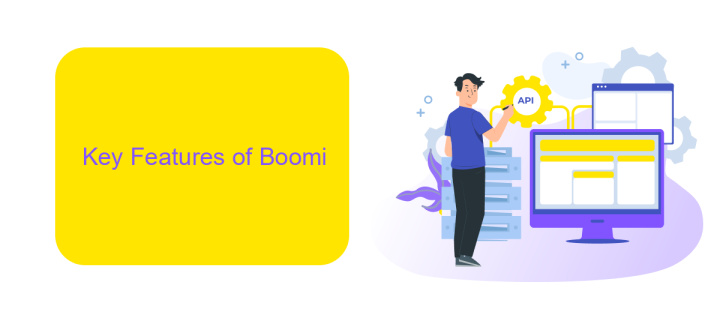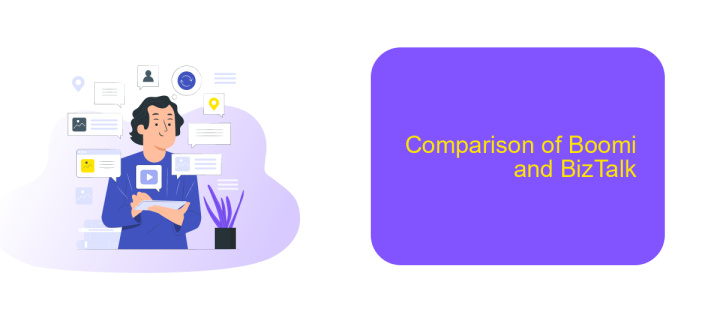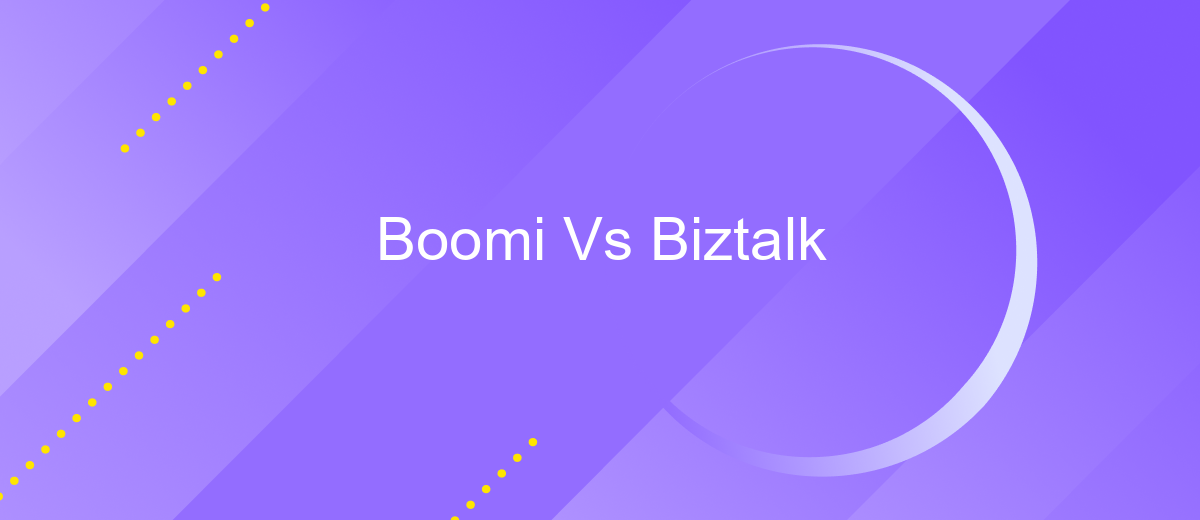Boomi Vs Biztalk
In today's rapidly evolving digital landscape, businesses are increasingly reliant on robust integration platforms to streamline their operations. Boomi and BizTalk are two leading solutions that offer distinct features and capabilities. This article provides a comparative analysis of Boomi and BizTalk, highlighting their strengths and weaknesses to help organizations make informed decisions about which platform best meets their integration needs.
Introduction
In today's fast-paced digital landscape, businesses are increasingly reliant on integration platforms to streamline their operations and enhance productivity. Two of the most prominent players in this field are Boomi and BizTalk. Both platforms offer robust solutions for connecting disparate systems, automating workflows, and ensuring seamless data exchange. However, choosing the right platform for your business can be a challenging task.
- Boomi: Known for its cloud-native architecture, ease of use, and rapid deployment capabilities.
- BizTalk: Renowned for its enterprise-grade features, extensive support for various protocols, and strong security measures.
When evaluating Boomi and BizTalk, it's essential to consider factors such as scalability, cost, and specific use cases. Additionally, services like ApiX-Drive can further simplify the integration process by providing a user-friendly interface for connecting multiple applications without extensive coding. By understanding the strengths and weaknesses of each platform, businesses can make an informed decision that aligns with their integration needs and long-term goals.
Key Features of Boomi

Boomi is a comprehensive integration platform that offers a wide range of features designed to streamline and simplify the process of connecting various systems and applications. One of its key features is the visual interface, which allows users to create integrations through a drag-and-drop mechanism, reducing the need for extensive coding knowledge. Boomi also supports a vast array of connectors, enabling seamless integration with numerous third-party applications, databases, and services. This flexibility ensures that businesses can easily adapt and scale their integration needs as they grow.
Another standout feature of Boomi is its robust data transformation capabilities, which allow users to map and transform data between different formats effortlessly. Additionally, Boomi offers real-time monitoring and analytics, providing valuable insights into the performance and status of integrations. For those looking to further enhance their integration processes, services like ApiX-Drive can be leveraged to automate and streamline data flows between various systems, ensuring optimal efficiency and productivity. Boomi's cloud-native architecture also ensures high availability and scalability, making it a reliable choice for businesses of all sizes.
Key Features of BizTalk

BizTalk is a robust enterprise integration tool developed by Microsoft, designed to facilitate seamless communication between different business systems. It offers a comprehensive suite of features that streamline the integration process, ensuring efficient data exchange and process automation.
- Business Process Automation: BizTalk enables the automation of complex business processes, reducing manual intervention and improving operational efficiency.
- Extensive Adapter Library: It provides a wide range of adapters for connecting various systems, including ERP, CRM, and database applications.
- Scalability and Performance: BizTalk is designed to handle high volumes of transactions, making it suitable for large enterprises with demanding integration needs.
- Security and Compliance: With robust security features, BizTalk ensures that data is transmitted securely, meeting compliance requirements.
- Monitoring and Analytics: The platform offers powerful monitoring tools and analytics capabilities to track and optimize integration processes.
- Support for Multiple Protocols: It supports a variety of communication protocols, including HTTP, FTP, and SOAP, ensuring flexibility in integration.
In addition to these features, services like ApiX-Drive can complement BizTalk by providing additional integration capabilities, simplifying the connection of various applications and services. This combination can significantly enhance the overall efficiency and effectiveness of business operations.
Comparison of Boomi and BizTalk

Boomi and BizTalk are two prominent integration platforms that offer unique features for businesses looking to streamline their processes. Boomi, a cloud-native integration platform as a service (iPaaS), is known for its user-friendly interface and rapid deployment capabilities. On the other hand, Microsoft BizTalk Server is an on-premises solution that provides robust enterprise application integration (EAI) and business process automation (BPA) capabilities.
Both platforms have their strengths and weaknesses, which can be critical depending on the specific needs of a business. Boomi excels in cloud integration and ease of use, while BizTalk is often favored for its comprehensive on-premises integration capabilities and extensive support for Microsoft technologies.
- Deployment: Boomi is cloud-based, whereas BizTalk is on-premises.
- User Interface: Boomi offers a more intuitive, user-friendly interface compared to BizTalk.
- Integration Capabilities: Both support a wide range of applications and protocols, but BizTalk has deeper integration with Microsoft products.
- Scalability: Boomi provides better scalability for cloud environments, while BizTalk is more suited for large enterprise on-premises setups.
For businesses that require a flexible and scalable solution, Boomi might be the better choice, especially when combined with services like ApiX-Drive, which can further simplify the integration process. Conversely, organizations deeply embedded in the Microsoft ecosystem may find BizTalk to be a more fitting solution due to its robust support for Microsoft technologies and on-premises infrastructure.
Conclusion
In conclusion, both Boomi and BizTalk offer robust solutions for enterprise integration, each with its own set of strengths and challenges. Boomi stands out for its cloud-native architecture, ease of use, and rapid deployment capabilities, making it an excellent choice for organizations looking for agility and scalability. On the other hand, BizTalk is renowned for its deep integration with Microsoft products and its extensive on-premises capabilities, which can be crucial for enterprises with significant investments in Microsoft technologies.
Ultimately, the choice between Boomi and BizTalk will depend on your organization's specific needs, existing infrastructure, and long-term strategic goals. For those seeking a flexible and user-friendly integration platform, Boomi may be the better fit. Conversely, for companies heavily reliant on Microsoft ecosystems, BizTalk could offer more seamless integration. Additionally, services like ApiX-Drive can further enhance the integration process by providing simplified, automated workflows, ensuring that businesses can maximize the potential of their chosen platform.


FAQ
What are the main differences between Boomi and BizTalk?
Which platform is better for cloud integrations?
Can both Boomi and BizTalk handle real-time data integration?
What are the cost implications of using Boomi vs BizTalk?
How easy is it to implement and maintain integrations with Boomi and BizTalk?
Time is the most valuable resource in today's business realities. By eliminating the routine from work processes, you will get more opportunities to implement the most daring plans and ideas. Choose – you can continue to waste time, money and nerves on inefficient solutions, or you can use ApiX-Drive, automating work processes and achieving results with minimal investment of money, effort and human resources.

